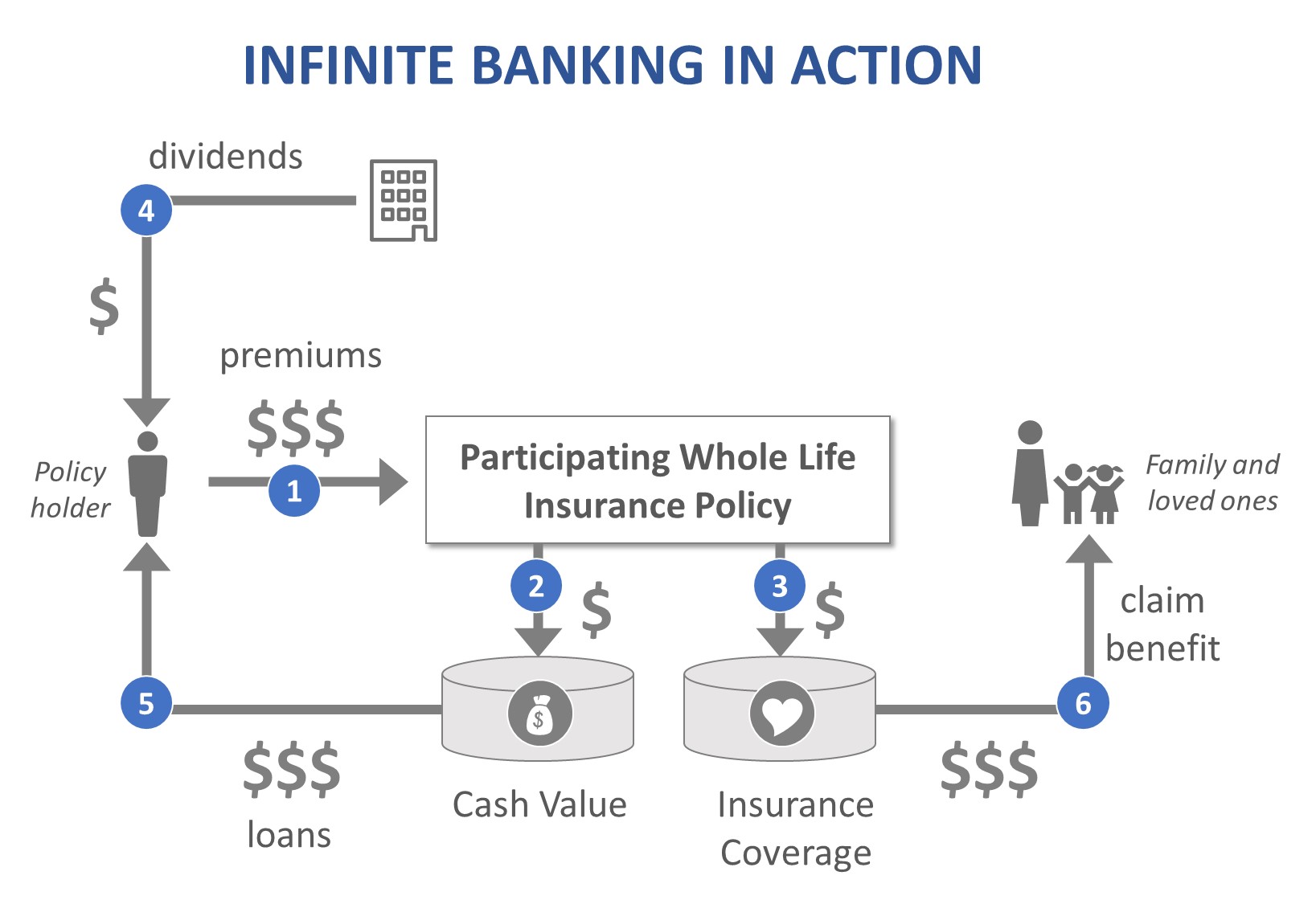

Finance
What Is The Annual Mileage For Car Insurance?
Published: November 17, 2023
Find out how your annual mileage can affect your car insurance rates. Learn more about car insurance and finance at our website.
(Many of the links in this article redirect to a specific reviewed product. Your purchase of these products through affiliate links helps to generate commission for LiveWell, at no extra cost. Learn more)
Table of Contents
- Introduction
- Definition of Annual Mileage
- Importance of Annual Mileage for Car Insurance
- Factors Affecting Annual Mileage
- How Annual Mileage Affects Car Insurance Rates
- How to Determine Your Annual Mileage
- Verifying Annual Mileage with Insurance Companies
- Common Mistakes to Avoid Regarding Annual Mileage
- Tips for Lowering Car Insurance Costs Based on Annual Mileage
- Conclusion
Introduction
When it comes to car insurance, there are several factors that insurers take into consideration to determine the cost of your premiums. One of these factors is your annual mileage. The annual mileage refers to the number of miles you drive in a year, and it plays a significant role in determining your car insurance rates. Insurers use this information to assess the level of risk associated with your vehicle, as the more you drive, the higher the likelihood of accidents or other incidents.
Understanding how annual mileage affects your car insurance rates is crucial, as it can have a significant impact on your overall premium costs. Whether you drive a few thousand miles a year or have a long daily commute, your annual mileage informs the insurance company about your driving habits and exposure to potential risks on the road.
In this article, we will delve into the concept of annual mileage, the importance of it for car insurance, the factors that affect it, and how it can impact your insurance rates. We will also provide tips on how to determine your annual mileage accurately and discuss some common mistakes to avoid. Additionally, we will explore strategies for leveraging your annual mileage to lower your car insurance costs. So let’s dive in and explore the world of annual mileage and car insurance!
Definition of Annual Mileage
Annual mileage refers to the total number of miles a vehicle is driven in a year. It is a key factor that car insurance companies use to assess the risk associated with insuring a vehicle and calculating premiums. The more miles a vehicle is driven, the greater the exposure to potential accidents, theft, and damage. On the other hand, vehicles with lower annual mileage are generally considered to have a lower risk profile and may be eligible for lower insurance rates.
Annual mileage can vary significantly depending on various factors, such as the individual’s driving habits, employment situation, and location. Someone who commutes long distances to work or frequently takes road trips will have a higher annual mileage compared to someone who primarily uses their vehicle for short errands or occasional weekend drives.
It is essential to accurately report your annual mileage to your car insurance provider, as providing incorrect or misleading information can lead to potential issues when filing a claim. Underestimating your annual mileage may result in your claim being denied or your policy being canceled. Conversely, overestimating your annual mileage can lead to higher premiums than necessary.
In some cases, insurance companies may require proof of annual mileage, such as odometer readings or data from a telematics device installed in the vehicle. Therefore, it is crucial to track your mileage accurately and honestly to ensure that you are providing the most precise information to your insurance provider.
Importance of Annual Mileage for Car Insurance
The annual mileage of a vehicle is a crucial factor that car insurance companies consider when determining insurance rates. It serves as an indicator of the amount of time a vehicle spends on the road and the likelihood of accidents or other incidents occurring. Understanding the importance of annual mileage can help you grasp why it matters in the context of car insurance.
Firstly, car insurance companies use annual mileage as a risk assessment tool. The more miles you drive, the more at risk you are for accidents, theft, and other potential incidents. Vehicles with higher annual mileage have more exposure to various hazards, and insurance companies adjust premiums accordingly to account for the increased risk.
Secondly, annual mileage reflects the vehicle’s usage patterns. Insurance companies differentiate between vehicles used for personal purposes and those used for business purposes. The annual mileage helps determine if the vehicle is primarily used for everyday commuting or if it is being used for commercial activities, such as deliveries or ridesharing. Business-related usage typically carries higher insurance costs due to increased exposure and potential liability.
Moreover, annual mileage affects the wear and tear on your vehicle. The more you drive, the more likely you are to experience mechanical problems that may require repairs or maintenance. Insurance companies take this into consideration, as higher mileage vehicles might be more prone to breakdowns, accidents, or other issues.
Lastly, insurance companies use annual mileage data to analyze driving trends and claims statistics. By examining the correlation between mileage and claims frequency, insurers can refine their underwriting process and better understand the risks associated with different mileage brackets. This data-driven approach helps them assess risk accurately and set appropriate premium rates for policies.
Ultimately, providing accurate annual mileage information to your insurance provider is crucial to ensure that you are paying the appropriate premium for your unique driving circumstances. Misrepresenting or underestimating your annual mileage might not only lead to potential claim issues but can also result in higher premiums than necessary. Therefore, it’s crucial to be honest and forthcoming about your annual mileage when obtaining car insurance coverage.
Factors Affecting Annual Mileage
The annual mileage of a vehicle can be influenced by a variety of factors. Understanding these factors can help you determine how much you drive and accurately report your annual mileage to your car insurance provider. Here are some key factors that can affect your annual mileage:
- Commuting Distance: The distance you travel to and from work every day can significantly impact your annual mileage. Those with long commutes are likely to have higher annual mileage compared to those who live closer to their workplace.
- Lifestyle: Your lifestyle and daily activities can affect your annual mileage. For example, if you frequently travel long distances or take road trips, your annual mileage is likely to be higher. On the other hand, if you primarily use your vehicle for short trips or errands, your annual mileage may be lower.
- Work or Business-related Travel: If your job requires extensive travel or you use your vehicle for business purposes, such as deliveries or client visits, your annual mileage is likely to be higher. Business-related mileage often leads to increased wear and tear on a vehicle and higher insurance costs.
- Location: Your geographic location can impact your annual mileage. For example, if you live in a rural area with limited public transportation options, you may need to drive more frequently, resulting in higher annual mileage. On the other hand, living in a densely populated city with accessible public transportation may lead to lower annual mileage.
- Personal Habits and Hobbies: Your personal habits and hobbies can also influence your annual mileage. If you frequently engage in activities that require driving, such as sports, outdoor recreation, or social events, your annual mileage may be higher.
- Changes in Lifestyle: Significant changes in your lifestyle, such as a new job, relocation, or retirement, can also impact your annual mileage. For example, if you retire and no longer have a daily commute, your annual mileage is likely to decrease.
It’s important to consider these factors when determining your annual mileage for car insurance purposes. By accurately assessing your driving habits and lifestyle, you can provide your insurance provider with the most precise information, ensuring that you receive the appropriate coverage and premiums based on your unique situation.
How Annual Mileage Affects Car Insurance Rates
The annual mileage of a vehicle has a direct impact on car insurance rates. Insurance companies consider annual mileage as an essential factor because it serves as an indicator of the level of risk associated with insuring a vehicle. Understanding how annual mileage affects car insurance rates can help you make informed decisions and potentially lower your premiums.
Insurance providers typically categorize drivers into mileage brackets, such as low mileage, average mileage, or high mileage. The specific definitions of these categories may vary among insurers. Generally, drivers with lower annual mileage tend to receive more favorable rates, while those with higher mileage may face higher premiums.
The reason for this is straightforward: the more you drive, the more time you spend on the road, increasing your exposure to potential accidents and other incidents. Insurance companies consider those with higher annual mileage to be at a greater risk of making a claim, resulting in higher premiums to compensate for the increased likelihood of payout.
Additionally, higher mileage increases the wear and tear on your vehicle, making it more susceptible to mechanical issues and potential breakdowns. This can lead to higher insurance costs as well, as insurance companies may need to account for the increased likelihood of claims related to vehicle damage or breakdowns.
On the other hand, drivers with lower annual mileage are generally eligible for lower insurance rates. This is because they spend less time on the road, reducing their exposure to potential risks. Lower mileage drivers are typically associated with a lower likelihood of accidents and are perceived as safer risks by insurance companies.
It’s essential to accurately report your annual mileage to your insurance provider. Misrepresenting or underestimating your mileage may result in potential issues when filing a claim, and your insurance company may deny coverage or cancel your policy. Conversely, overestimating your mileage could lead to higher premiums than necessary.
If you have the option to select a mileage-specific car insurance policy, such as a low mileage or pay-as-you-drive policy, and you qualify for it, you may be able to save on your premiums. These policies typically offer lower rates for drivers with lower annual mileage, making them more cost-effective for individuals who don’t drive extensively.
By understanding how annual mileage affects car insurance rates, you can make informed decisions when selecting coverage and potentially take steps to lower your premiums based on your driving habits and lifestyle.
How to Determine Your Annual Mileage
Determining your annual mileage accurately is crucial when obtaining car insurance coverage. Providing your insurance company with an accurate estimation helps ensure that you are paying the appropriate premium based on your driving habits. Here are some steps to help you determine your annual mileage:
- Refer to your Vehicle’s Odometer: The simplest way to estimate your annual mileage is by referring to your vehicle’s odometer. Take note of the mileage indicated at the beginning of the year and then again at the end of the year. Subtract the starting mileage from the ending mileage to determine the total miles driven in a year. However, keep in mind that this method assumes consistent driving throughout the year and may not be accurate if your driving habits vary significantly.
- Track Your Mileage Manually: If you don’t have access to a consistently recorded odometer reading, you can manually track your mileage. Keep a logbook in your vehicle and record the starting and ending mileage for each trip you take. At the end of the year, add up the total miles from your recorded trips to calculate your annual mileage.
- Use Mileage Tracking Apps: There are various mileage tracking apps available that use GPS technology to track your vehicle’s mileage. These apps can provide accurate data on your driving distance and time. Simply install the app on your smartphone and enable it before each trip. At the end of the year, review the app’s records to determine your annual mileage.
- Review Service Records: If you regularly service your vehicle, the service records may include mileage details for each visit. Reviewing these records can give you a rough estimate of your annual mileage. However, keep in mind that service visits may not always align with your actual mileage if you have multiple cars or use other means of transportation.
- Consider Patterns and Daily Habits: Reflect on your daily routine and driving patterns. Consider factors like your commute to work, school runs, shopping trips, and any other regular driving activities. Estimate the distance and frequency of these trips to get a sense of your recurring mileage. Don’t forget to account for potential variations during weekends, holidays, or vacations.
It’s crucial to provide your car insurance company with the most accurate estimate of your annual mileage. Keep in mind that underestimating or overestimating your mileage can lead to potential issues, such as claim denials or higher premiums. Regularly reassess your annual mileage to ensure that your insurance coverage aligns with your driving habits and lifestyle.
Verifying Annual Mileage with Insurance Companies
Insurance companies may require you to provide verification of your annual mileage to ensure the accuracy of your reported mileage. Verifying your annual mileage helps insurance providers assess the level of risk associated with your policy and determine appropriate premiums. Here are some common methods used by insurance companies to verify annual mileage:
- Odometer Readings: Insurance companies may request recent odometer readings from your vehicle as proof of your annual mileage. This can be done by taking your vehicle to an authorized service center or providing photographs of the odometer display. Odometer readings provide an accurate and reliable way to verify the actual mileage driven.
- Telematics Devices: Some insurance companies offer telematics programs that utilize tracking devices installed in your vehicle or mobile apps. These devices collect data on your driving habits, including mileage, speed, and braking patterns. Insurance companies can access this data to verify your annual mileage. Telematics programs may provide additional benefits, such as personalized discounts, based on your driving behavior.
- Mileage Affidavit: In certain cases, insurance companies may ask you to sign a mileage affidavit, declaring the accuracy of your reported annual mileage. By signing the affidavit, you acknowledge that providing false information may result in policy cancellation or claim denial. It’s crucial to be honest when filling out these forms, as any discrepancy between your affidavit and actual mileage can lead to complications.
- GPS Tracking: In rare cases, insurance companies may use GPS tracking devices to monitor your vehicle’s movements and determine actual mileage. However, this method is less common and typically reserved for specific situations, such as high-risk policies or policies with suspected inaccuracies.
It’s important to note that insurance companies implement these verification methods to prevent fraud and ensure accurate premium calculations. Providing truthful information about your annual mileage helps maintain a fair and transparent insurance system for all policyholders.
Make sure to comply with your insurance company’s requirements for verifying annual mileage. Failure to provide requested verification or providing inaccurate information can result in policy cancellation, claim denials, or even legal consequences. Be honest and accurate when reporting your mileage to ensure a smooth and reliable insurance experience.
Common Mistakes to Avoid Regarding Annual Mileage
When it comes to reporting annual mileage for car insurance, there are some common mistakes that drivers make. These mistakes can have negative consequences, including higher premiums or issues with claims. To ensure a smooth insurance experience, it’s important to avoid the following common mistakes regarding annual mileage:
- Underestimating Mileage: One of the most common mistakes is underestimating your annual mileage. Some drivers may intentionally report a lower mileage to try and secure a lower premium. However, insurance companies may request proof of mileage at claim time, and providing inaccurate information can lead to claim denials or even policy cancellation.
- Failure to Update Mileage: Your annual mileage can change over time due to changes in your lifestyle, work, or commuting patterns. Failing to update your insurance provider with the accurate mileage can result in incorrect premiums. It’s important to regularly reassess your mileage and inform your insurer of any significant changes.
- Misjudging Business Mileage: If you use your vehicle for business purposes, it’s crucial to accurately separate your personal and business mileage. Misjudging or misclassifying your business mileage can lead to issues with coverage and claims. Be sure to consult with your insurance provider to understand how business mileage should be reported.
- Ignoring Tracking or Monitoring Programs: Some insurance companies offer tracking or monitoring programs that take into account your driving behavior and mileage. Ignoring these programs can mean missing out on potential discounts or benefits. It’s worth considering these programs if you are a responsible driver with low annual mileage.
- Inconsistent Reported Mileage: Providing inconsistent mileage information across policies or renewals can raise red flags with insurance companies. Inconsistencies may indicate discrepancies or potential misrepresentations. Ensure that your reported mileage is consistent and accurate across all communications with your insurance provider.
By avoiding these common mistakes, you can maintain a truthful and accurate representation of your annual mileage. This helps ensure that you are paying appropriate premiums and have proper coverage in the event of a claim. Remember that honesty and accuracy are key when reporting your annual mileage to your insurance provider.
Tips for Lowering Car Insurance Costs Based on Annual Mileage
If you want to lower your car insurance costs based on your annual mileage, there are several strategies you can consider. By implementing these tips, you may be able to save money on your premiums while still maintaining the coverage you need. Here are some essential tips to help you lower your car insurance costs based on your annual mileage:
- Consider Usage-Based Insurance: Usage-based insurance programs, such as pay-as-you-drive or telematics-based policies, use data from devices or apps to track your driving behavior and mileage. If you are a responsible driver with low annual mileage, these programs can potentially offer significant discounts and personalized pricing based on your actual driving habits.
- Compare Insurance Quotes: Obtaining quotes from multiple insurance providers allows you to compare coverage options and premiums. Different insurance companies may have different approaches to pricing based on annual mileage. By shopping around, you can find an insurer that offers more favorable rates for your specific mileage bracket.
- Consider Higher Deductibles: If you are confident in your driving abilities and have a good track record, you can consider raising your deductible. Higher deductibles can lower your premiums, but keep in mind that you will need to pay more out of pocket in the event of a claim. Evaluate your financial situation and driving history to determine if this option is suitable for you.
- Utilize Low Mileage Discounts: Some insurance companies offer specific discounts for drivers with low annual mileage. Inquire with your insurer to see if they have such discounts available. You may need to provide proof of low mileage, such as odometer readings or signing an affidavit, to qualify for the discount.
- Consider Carpooling or Alternative Transportation: Reducing your annual mileage by carpooling or utilizing alternative transportation methods, such as public transit or biking, can significantly lower your insurance costs. Insurance providers often consider lower mileage to be associated with reduced risk and can offer lower premiums as a result.
- Review and Update Your Policy Regularly: Stay proactive with your car insurance policy by reviewing and updating it regularly. As your annual mileage changes, update your insurance provider to ensure that you are paying accurate premiums based on your current driving habits.
It’s important to note that while lowering your annual mileage can potentially lower your insurance costs, always make sure you have adequate coverage for your needs. Cutting corners on coverage to save on premiums can leave you exposed to financial risks. Consider your unique circumstances and consult with an insurance professional to determine the best approach to reducing your car insurance costs based on your annual mileage.
Conclusion
Understanding the concept of annual mileage and its impact on car insurance is essential for every driver. Your annual mileage serves as a crucial factor in determining your insurance rates, as it reflects your level of risk on the road. By accurately reporting your annual mileage, you can ensure that you are paying appropriate premiums and receiving the right coverage for your driving habits.
Factors such as commuting distance, lifestyle, work/business-related travel, location, and personal habits can all influence your annual mileage. It’s important to consider these factors when determining your annual mileage and providing accurate information to your insurance provider.
Verifying your annual mileage with your insurance company through methods such as odometer readings, telematics devices, or mileage affidavits helps maintain transparency and prevent potential issues with claims or policy cancellations. It’s crucial to be honest and upfront about your annual mileage during the insurance application process.
By avoiding common mistakes, such as underestimating mileage or ignoring tracking programs, you can ensure that your annual mileage is accurately reflected in your insurance policy. Additionally, exploring strategies such as comparing quotes, considering usage-based insurance, and utilizing low mileage discounts can help lower your car insurance costs based on your annual mileage.
In conclusion, being knowledgeable about annual mileage and its significance in car insurance empowers you to make informed decisions and optimize your coverage and premiums. By regularly reviewing and updating your policy as your mileage changes, you can maintain the right balance between adequate coverage and affordable premiums. Always consult with insurance professionals to ensure that your insurance policy aligns with your unique driving habits and needs.














